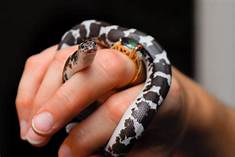How to Take Care of Pet Ducks
Ducks are lovely and entertaining pets that can add a lot of joy to your life. However, before you bring a duck home, it's essential to understand their needs and how to care for them properly. Here's a comprehensive guide on how to take care of pet ducks:

Housing
1. Coop: Provide your ducks with a weatherproof coop that's big enough for them to move around comfortably. The coop should be well-ventilated and have a dry floor.
2. Duck House: Within the coop, create a nesting area or duck house. This should be a draft-free and private space where the ducks can lay their eggs and raise their young.
3. Roosting Area: Ducks like to roost off the ground, so create a perching area within the coop.
Food and Water
1. Diet: Ducks are omnivores, so their diet should include a variety of foods. Feed them a commercial duck feed along with fresh fruits, vegetables, and greens.
2. Feeding Schedule: Feed your ducks twice a day, in the morning and evening. The amount of food you give them will depend on their age, size, and activity level.
3. Water: Provide your ducks with fresh, clean water at all times. The water container should be deep enough for them to submerge their heads but not so deep that they can drown.
Health and Care
1. Vaccinations: Vaccinate your ducks regularly to protect them from common diseases. Consult with your veterinarian for a vaccination schedule.
2. Bathing: Ducks love to bathe, so provide them with a shallow pool or tub of water where they can splash and play.
3. Grooming: Brush your ducks' feathers regularly to keep them clean and healthy. Trim their nails and beaks as needed.
Safety and Exercise
1. Enclosure: Provide your ducks with a secure enclosure where they can roam freely. The enclosure should be predator-proof and have plenty of space for them to exercise.
2. Supervision: When your ducks are outside, supervise them to ensure they're safe from predators and potential hazards.
3. Toys: Offer your ducks toys and activities to keep them entertained and active. This can include floating toys in their water, hanging toys in their coop, and providing them with a grassy area to graze.
Socialization
1. Companionship: Ducks are social animals and should not be kept alone. Provide them with at least one companion duck.
2. Human Interaction: Spend time with your ducks daily to bond with them and keep them tame. Talk to them, pet them, and let them interact with you.
3. Training: You can train your ducks to do simple tricks or follow basic commands. This can be a fun and rewarding experience for both you and your ducks.
Remember that taking care of pet ducks is a long-term commitment, and you need to be prepared to provide them with proper care and attention throughout their lives. If you're unsure about anything related to duck care, consult with a veterinarian or an experienced duck breeder for guidance.Declaration: All article resources on this website, unless otherwise specified or labeled, are collected from online resources. If the content on this website infringes on the legitimate rights and interests of the original author, you can contact this website to delete it.




